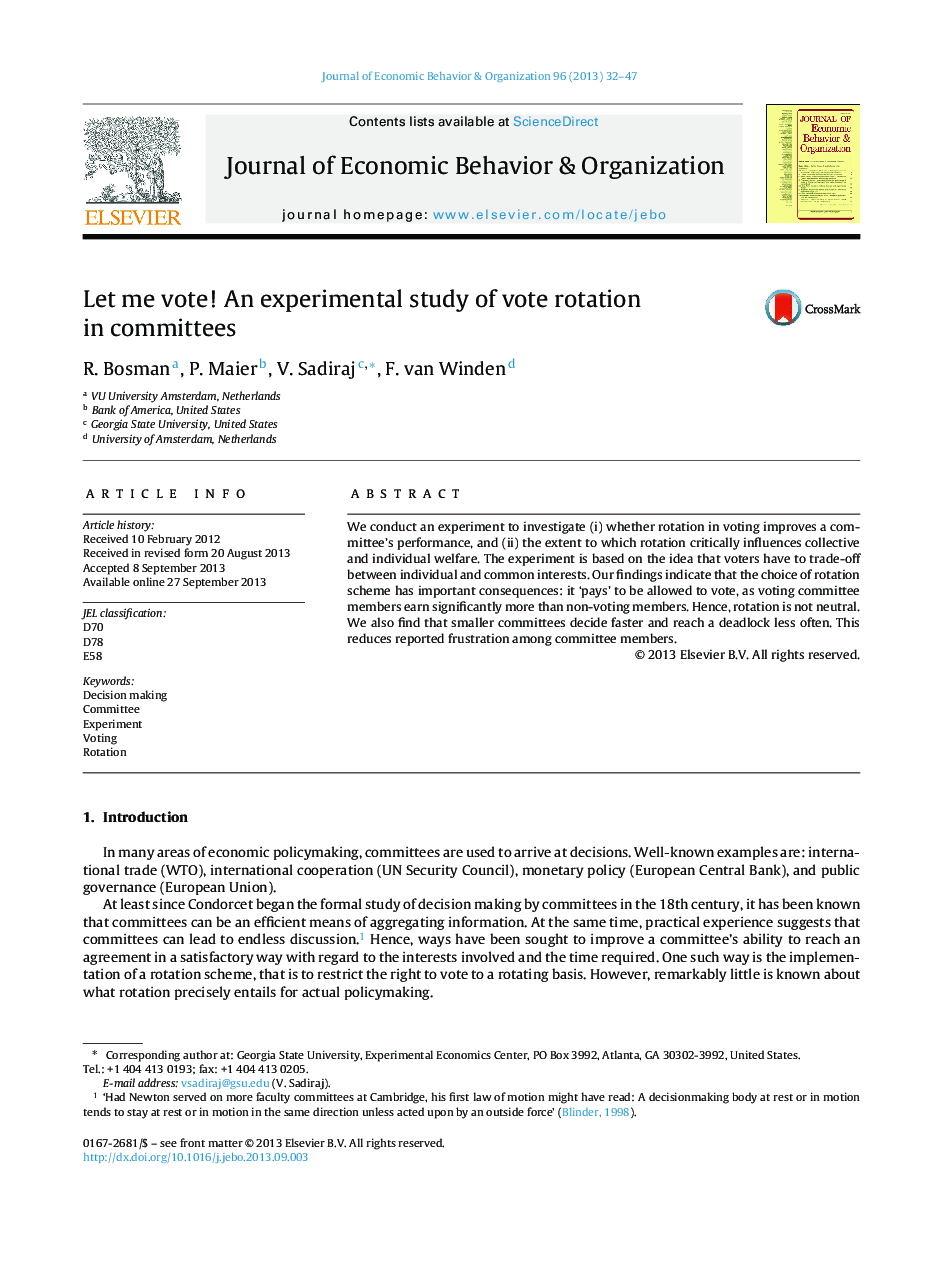| Article ID | Journal | Published Year | Pages | File Type |
|---|---|---|---|---|
| 883556 | Journal of Economic Behavior & Organization | 2013 | 16 Pages |
•We conduct an experiment to investigate whether rotation in voting improves a committee's performance.•We also look at the extent to which rotation critically influences collective and individual welfare.•We find that smaller committees are more efficient than larger ones: decisions are made faster and fewer decisions are blocked.•Rotation in voting induces less frustration among committee members.•The choice of a rotation scheme has important consequences: voting committee members earn significantly more than nonvoting members.
We conduct an experiment to investigate (i) whether rotation in voting improves a committee's performance, and (ii) the extent to which rotation critically influences collective and individual welfare. The experiment is based on the idea that voters have to trade-off between individual and common interests. Our findings indicate that the choice of rotation scheme has important consequences: it ‘pays tm) to be allowed to vote, as voting committee members earn significantly more than non-voting members. Hence, rotation is not neutral. We also find that smaller committees decide faster and reach a deadlock less often. This reduces reported frustration among committee members.
